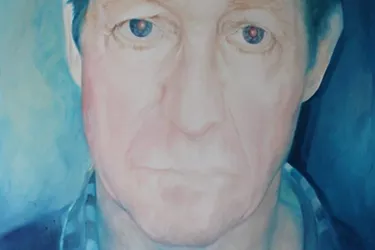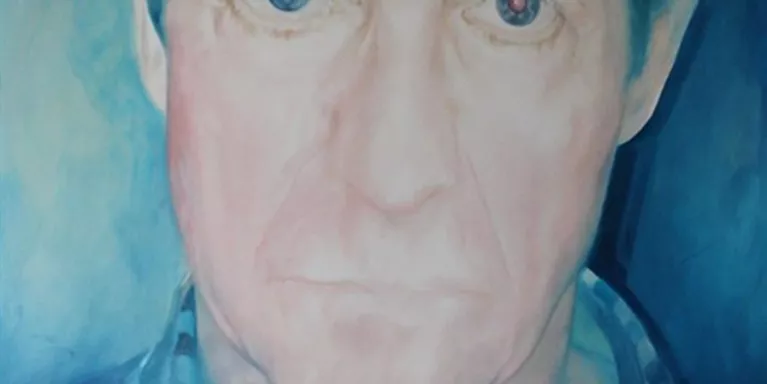Dads need support, too
On International Fathers' Mental Health Day, Scott blogs about how he started campaigning for fathers after suffering paternal mental health problems.
Scott's Twitter handle: @Scottmair9
Scott's Insta handle: @P_M_H_Support
My wife and I have seven wonderful boys from 18 years old down to two. When our youngest was born he required urgent care in the newborn intensive care unit and my wife became critically ill after a Caesarean section. Despite 72 hours of raising alarms I wasn’t listened to and never taken seriously. I was told to listen to the experts, and dismissed as troublesome and an over worrier.
We’d already had multiple traumatic births, each one chipping away at me until my mind said ‘that’s enough’.
At one stage I stood on the maternity ward and said goodbye to the love of my life who I had loved since we met aged 16 on college induction day and had spent more than 20 years with by this point. I remember thinking how did we go from the best feeling in the world to the worst, how was I going to bring up seven boys including a premature baby on my own, and how do I tell them Mummy will not be coming home. Mentally I broke in a way that I don’t think I will ever recover fully from. My wife recovered thankfully and my son who was in the newborn intensive care unit is now running around full of mischief.
Reaching breaking point
We’d already had multiple traumatic births, each one chipping away at me until my mind said that’s enough. Every human has a breaking point and this was mine. We see strength as holding it together, and portraying this “nothing hurts me” bravado, but that isn’t true, I was a former infantry soldier, but seeking help and admitting my flaws was one of the hardest things I’ve done in my life – and the best lesson I’ve taught my sons. I had spent so long trying to be perfect as a man, husband and parent and I learnt the hard way perfect doesn’t exist. Parenting is the greatest thing we will ever do, but it is also the hardest and it’s perfectly fine to admit it.
I was knocked down and out for the count, but I chose to rise and not be another statistic on men’s mental health. I also knew I had to use my experience to help others. After all, my sons are the adults and hopefully parents of the future and the next generation deserve so much better than we have had in terms of mental health support for all parents.
The transition is hard for men, and discovering what life now looks like, how we recalibrate the relationship with our partner as we fall down the pecking order ( most of us do, that’s not a reflection of how loved you are) are issues that we currently don’t discuss as a society.
So that’s why I now campaign for paternal mental health awareness and proper antenatal education for all parents to educate us about the realities of pregnancy, birth and parenting. I work alone and with many charities and trusts offering peer support and dads’ antenatal classes.
The role of a father has changed in my almost 20 years as a dad, and unfortunately society hasn’t kept up.
I talk about the importance of seeing the family as a unit and supporting all parents and giving them the tools to support each other. By starting early on in pregnancy we give dads a chance to raise concerns so if they do then find themselves struggling they are more likely to reach out.
The role of a father has changed in my almost 20 years as a dad, and unfortunately society hasn’t kept up. We are far more primary care givers, more hands on, more likely to work from home and share parental leave when babies are born. Add in Covid and homeschooling, fathers are juggling things many people will say mums have done for years, but we offer them very little in support and guidance.
All the time I hear that men don’t talk and dads don’t share, but it’s simply not true. They do talk. it’s just that there are so few safe places or platforms.
Traumatic birth led to anxiety
My first son was born traumatically, and the anxiety and impact of that followed me through each future pregnancy. With no education or screening I continued to fall through the net. “How are you dad?” is a simple phrase that can change lives.
Not that long ago my life was bleak and I felt too broke to fix it. But with the right support and an understanding of why I felt the way I did, I have been on the recovery journey. I’m nothing special. I just refused to give up and accept that what we have is what we need. If you are a struggling father remember all storms pass and where you are doesn’t need to be where you stay. But we dads have to fight for a system that supports struggling fathers as well as mothers.


Information and support
When you’re living with a mental health problem, or supporting someone who is, having access to the right information - about a condition, treatment options, or practical issues - is vital. Visit our information pages to find out more.
Share your story with others
Blogs and stories can show that people with mental health problems are cared about, understood and listened to. We can use it to challenge the status quo and change attitudes.

















